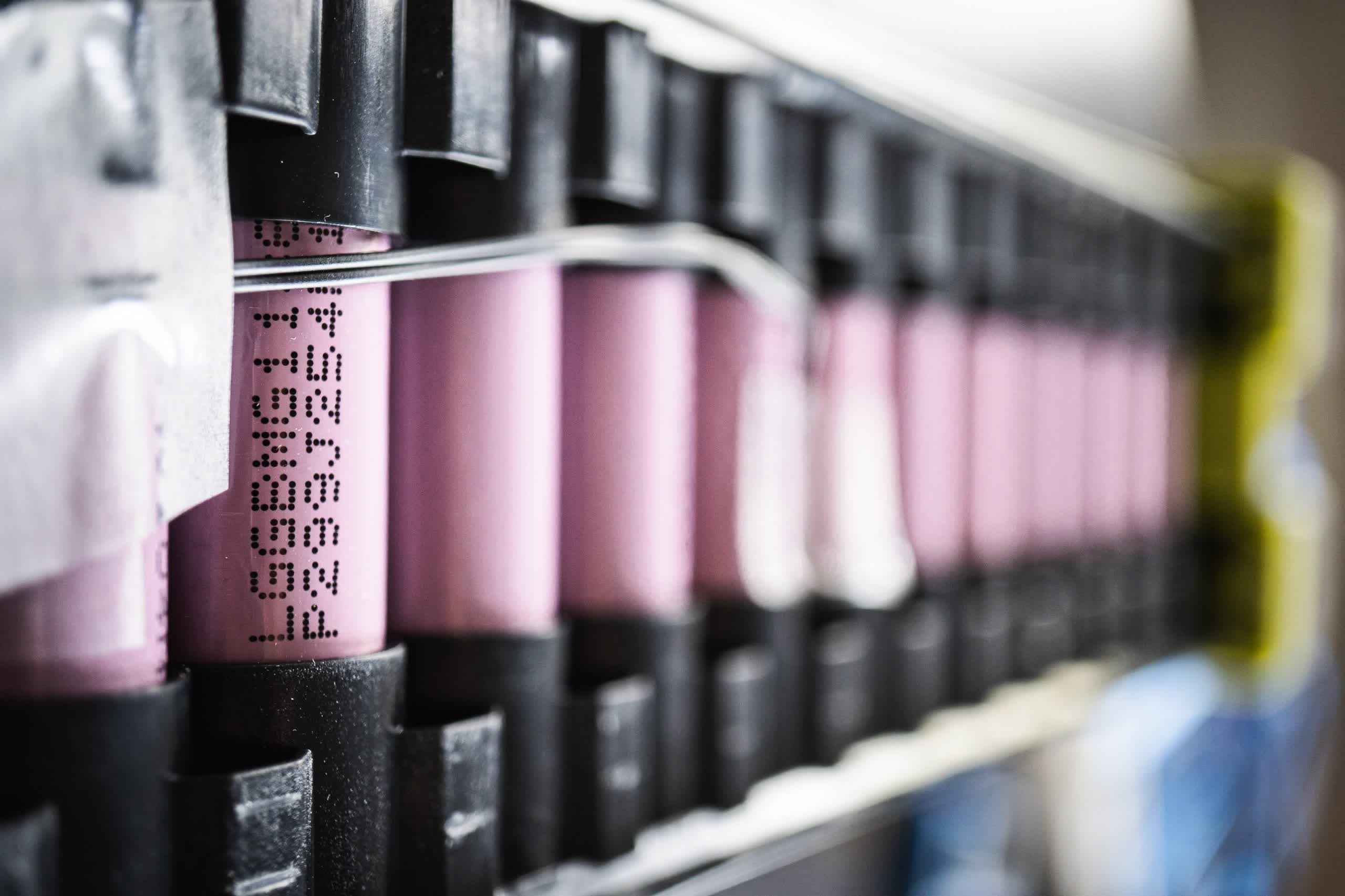Why it matters: Improving battery density would allow EV manufacturers to increase the range of their vehicles while using identically-sized battery packs. They could also opt to make some models (like sports cars) lighter and more compact if maximizing driving range isn't a priority.
According to a new report from Reuters, Panasonic is working on improved battery chemistries that could increase energy density by 20 percent by the next decade. Considering that the best batteries on the market today stand at about 750 Wh/l, the company's future cells could increase that figure to an impressive 900 Wh/l.
Panasonic will reportedly achieve this by using a new mix of additives in the battery's electrolyte, which would, in turn, boost the maximum voltage of each individual battery cell from 4.2 volts up to 4.4 volts. Another method would be replacing more of the graphite in anodes with silicon-based materials, though this would make the batteries more expensive. Finally, the company plans to use single-crystal materials in the cathode to mitigate the effects of microcracking (small cracks gradually forming with charge cycles leading to degraded battery life).

Panasonic is a major supplier for EV manufacturers like Tesla, meaning that these advancements could increase the range of a Model S, for example, by 75 miles. However, there are other ways to improve the energy density in EV battery packs.
Using 4680 battery cells, which are both wider and taller than today's 2170 cells, can improve the range of electric cars by 16 percent due to the more efficient use of space. They also have the advantage of being significantly cheaper to manufacture. Panasonic will reportedly build a new factory in Kansas that will supply Tesla with 4680 batteries, with the Model Y probably being the first car to ship with them.
